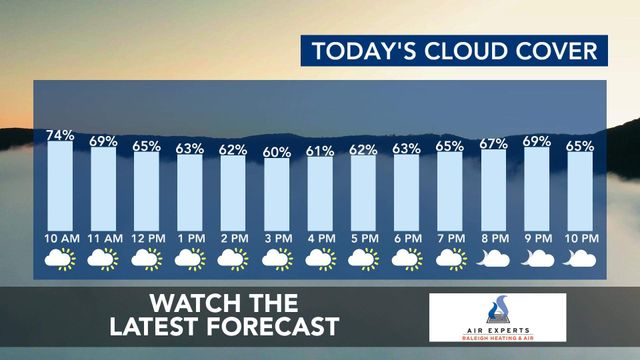What you need to know about preparing for hurricane season

This article was written for our sponsor, Whitley Law Firm.
North Carolina, like the rest of the world, is continuing to deal with the unprecedented COVID-19 pandemic. While the coronavirus was unexpected, hurricane season is something that people along the East Coast anticipate each year.
The Atlantic hurricane season typically begins in June and ends in November. While every hurricane season is different, having an idea of what to expect enables people to prepare ahead of time.
Experts are predicting a 60 percent chance of "above normal" destructive weather this year. These dangerous tropical storms can wreak havoc on homes, buildings and other infrastructure, agriculture, livelihoods and more. As North Carolina approaches the height of hurricane season, here are some tips for being proactive and staying safe.
Stay Informed
Though hurricanes originate off the coast, they are not just a coastal problem and can affect areas further inland in addition to beach cities and towns. To keep abreast of the latest weather information, make sure to visit the National Hurricane Preparedness page of the National Weather Service website to keep a pulse on what kinds of hazards are in your area.
If you have a smartphone or tablet (something that isn't connected to a landline in case of a power outage), it is recommended that you download the Federal Emergency Management Agency app. This app sends you alerts from the National Weather Service in real-time.
Additionally, identify local news channels that offer comprehensive coverage of weather forecasts, road and business closures, and emergency alerts. Many zip codes have a community Emergency Alert System that you can register for and familiarize yourself with.
In the case of a power outage, getting a portable radio is also a smart option. Staying informed is the foundation of successful danger preparedness.
Check that your insurance is up-to-date
According to a report by CNBC, the damage from 2018's Hurricane Florence was estimated between $17 and $22 billion. It's no secret that the tropical storms of hurricane season can leave communities and entire states in physical, emotional and financial ruins.
While this level of damage from a hurricane is a worst-case scenario, it's always best to make sure that your home's insurance policy is up-to-date.
"Make sure that your home's insurance policy has wind and wind-driven rain coverage. Wind damage and wind-driven rain damage may not be covered in your typical homeowners' insurance policy. We always advise our clients to purchase this coverage if they do not have it," said Matthew Bissette, an associate attorney at Whitley Law Firm in Raleigh. Bissette works with the firm's clients who have disputes with their insurance companies following hurricane and storm damage to their homes.
"A traditional homeowners' insurance policy typically covers the cost of repairs, but it does not cover any flood-related damage — flood insurance is an add-on. This could be especially important if you live on the coast or in an area of low elevation," Bissette finished.
Prepare for the worst, hope for the best
It isn't guaranteed that your home will face irreparable destruction or that you will have to evacuate, but it is a possibility, especially depending on where you live in relation to the hurricane. Preparing for the worst will leave you, your family, and your home and belongings in the best position possible should disaster strike.
One preliminary action is to check the condition of your home prior to the storm.
"If you can do so safely, take some photos of the most important elements of your home, such as the windows, roof shingles, drainage pipes and other areas at risk of damage," Bissette said. "Additionally, take pictures of the inside of your house as well — internal structure elements such as walls, ceilings and flooring that could potentially be affected by flooding and rain damage. These pictures will serve as a reference for the state of your home prior to any potential hurricane damage, and can be used to prove the cause of damage to your insurance provider."
Should you have to evacuate, it is recommended you plan a departure route ahead of time.
Local governments will always suggest evacuation routes based on your area, but these can be rushed and congested with traffic. Determining a specific route that is individualized for you and your family will bring both preparedness and peace of mind.
"Make a list of what to bring, when to leave and where to go if and when the time arises. Map your driving route, identify places of shelter, and make sure that you bring along any important documents, prescriptions and valuables," Bissette said. "If you're bringing pets, don't forget their food and supplies too."
Planning for unthinkable disasters like hurricanes can be overwhelming and foreboding, but you will be doing you and your family a great service by preparing ahead in times of great uncertainty.
This article was written for our sponsor, Whitley Law Firm.











